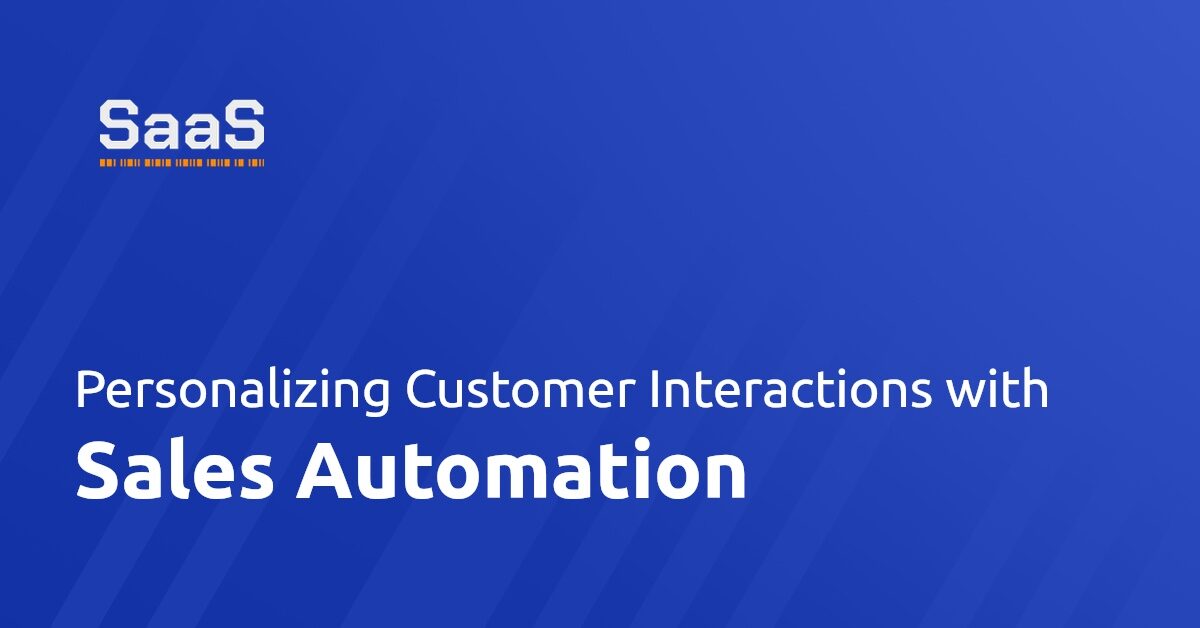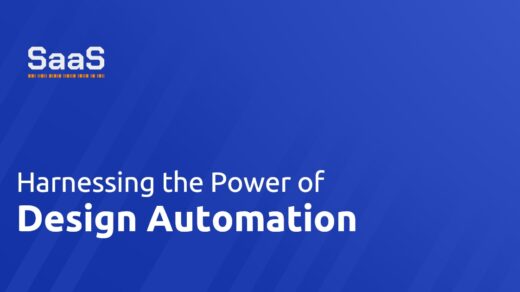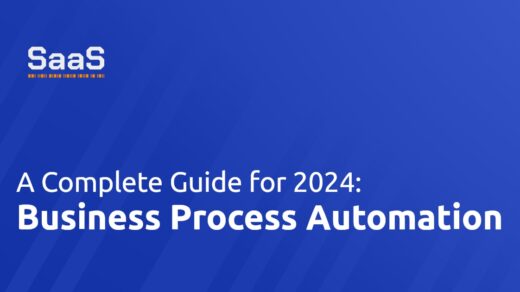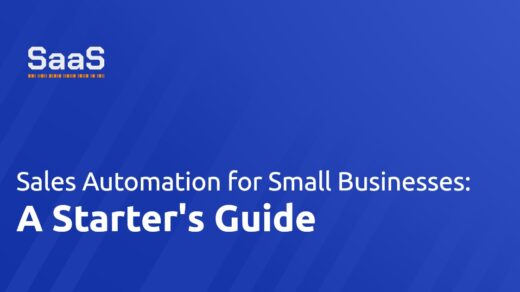In this ever changing and growing business era, customer engagement and satisfaction are pivotal for success. Personalized customer interaction has emerged as a potent strategy for businesses to create meaningful relationships and drive sales and how sales automation can be harnessed to deliver tailored experiences.
What Is the Concept of Personalized Customer Interactions?
Personalised customer interactions involve tailoring every touchpoint with a customer to their preferences, behaviours, and needs. Instead of generic communication, businesses strive to deliver relevant content, recommendations, and solutions. Personalization extends beyond addressing customers by name; it’s about understanding their journey and catering to their unique requirements. This level of personalization is made possible by leveraging data analytics and cutting-edge technology to create relevant and timely interactions.
One of the key elements of personalized interactions is context. By understanding the context of a customer’s interactions, businesses can provide solutions that genuinely address their pain points. This could involve suggesting products based on previous purchases, providing information relevant to their stage in the buying process, or simply acknowledging their specific interests. The goal is to create an experience that resonates with the customer on an individual level, making them feel valued and understood.
What Benefits Do Businesses Derive from Personalization?
Businesses that embrace personalised interactions reap a multitude of benefits. Firstly, personalization enhances customer satisfaction by demonstrating a keen understanding of individual preferences. This, in turn, drives customer loyalty and repeat business. Moreover, personalised experiences often lead to increased conversion rates and higher engagement, as customers are more likely to respond positively to relevant offers.
However, the benefits extend beyond short-term gains. Personalization is a cornerstone of relationship-building. It transforms customers from mere buyers into brand advocates. When customers experience interactions that are tailored to their preferences, they are more likely to share their positive experiences with others. This word-of-mouth advocacy can significantly boost a business’s reputation and reach.
Moreover, personalized interactions often lead to higher engagement levels. When customers receive content, recommendations, and solutions that resonate with them, they are more likely to actively participate in discussions, provide feedback, and take part in loyalty programs.
How Does Personalization Impact Customer Engagement?
Personalization is a catalyst for improved customer engagement within businesses. When customers receive tailored recommendations and communications, they feel valued and understood. This fosters a deeper connection with the brand, encourages active participation, and drives two-way conversations. The result is a more engaged customer base that willingly interacts and advocates for the brand.
Furthermore, personalised engagement encourages active participation. Customers who receive content and offers that align with their interests are more likely to respond, whether that means making a purchase, clicking on a link, or sharing the content with their network. This active participation can lead to increased brand visibility and reach as customers become the spokesperson for the brand. Engaged customers are also more likely to provide constructive feedback, enabling businesses to continuously improve their products and services.
Businesses that actively engage customers on a personal level create a positive feedback loop: engaged customers are more likely to provide valuable feedback and insights, which in turn can be used to further refine and personalize interactions. This emotional connection creates a lasting impact, prompting customers to choose the brand not only for its products or services but also for the personalized experience it provides.
How Can Sales Automation Be Utilised to Personalise Interactions?
Sales automation acts as a dynamic conduit to infuse personalization into customer interactions on a scalable level. By harnessing the power of data analytics and advanced algorithms, businesses can craft tailored experiences that resonate with individual customers. One primary way automation achieves this is by leveraging customer data.
Through triggered email campaigns and alerts, businesses can reach out to customers at precisely the right moment. For instance, an e-commerce platform can automate follow-up emails with personalised product recommendations based on a customer’s browsing and purchase history. This not only enhances the customer experience but also increases the likelihood of conversion.
With the ability to track how customers engage with different touchpoints, businesses can use automation to deliver content and offers that are consistently aligned with the customer’s evolving preferences real time. For instance, a customer who consistently engages with content about a specific product category can be automatically enrolled in a tailored email series, introducing them to new arrivals, new offers etc.
How Will You Implement Personalized Sales Automation to Transform Your Customer Interactions?
The first step is to lay the foundation by collecting and organising customer data. Implement robust data capture mechanisms to gather information about customer preferences, purchase history, and interactions with your brand. This data forms the basis for segmentation, enabling you to categorise customers into distinct groups based on common characteristics.
Once your customer data is organised, the next phase involves leveraging automation tools to create targeted and personalised communication campaigns. Start by mapping out the customer journey, identifying key touchpoints where automation can enhance the experience. As customers progress through the journey, automation can trigger personalised follow-ups, such as abandoned cart reminders with specific product recommendations.
Continuous monitoring and refinement are essential to the success of your personalized sales automation strategy. Implement tracking mechanisms to measure the effectiveness of your automation efforts. Monitor key performance indicators (KPIs) such as open rates, click-through rates, and conversion rates for your automated campaigns. Analyze the data to identify trends and insights that inform your optimization strategy.








